-
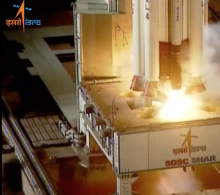
The Indian Space Research Organisation (ISRO) successfully placed a communication satellite GSAT-6A in a geosynchronous transfer orbit on March 29 (2018). It was carried on board the GSLV F-08 from the Satish Dhawan Space Centre. This is a communication satellite and will complement the GSAT-6, which is already in orbit. This marks the 12th flight of GSLV-F08 and sixth flight with indigenous cryogenic upper stage.
ISRO’s every launch is mostly unique in terms of capabilities, technologies and usages and hence this launch too needs to be put in perspective given its exclusivity.
-
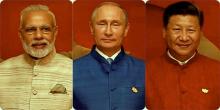
Due to unprecedented rise and global reach of China today, India and Russia are faced with some pertinent challenges. Some of the key issues are: How best to deal with China? Will the Cold War policy of containment work in case of China as mainstream communist ideology has failed for the most part in the post-globalised and post-Cold War phase? Or, simply a bland policy of engagement with China will work as China has adopted a more muscular approach in its conduct of foreign policy?
-
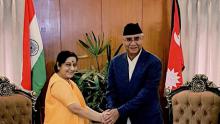
In a surprise move, External Affairs Minister Sushma Swaraj undertook a two-day official visit to Kathmandu, Nepal from February 1, 2018. The visit took place at a time when Nepal is preparing to hold the National Assembly (NA) elections (slated on February 7) under the Sher Bahadur Deuba-led caretaker government. A new government is set to be formed by the left alliance under K P Sharma Oli’s leadership.
-

"Palestine was ‘twice-promised’ to Jews - first by the Bible and another by the Balfour Declaration".
-
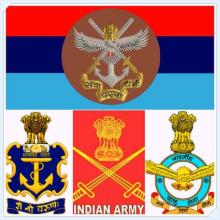
Great leap forward for Indian defence necessitates resolute action from the apex. A decade proves to be a short time for reforms in military affairs while a week is a long time in politics. However, surprise elements in Indian politics (the latest reshuffle in cabinet) notwithstanding, India appears to challenge conventional notions about military reforms, at least in initiating realms, if not in implementation and results thereafter. Results may vary but intents transcend regimes.
-

As India tries to stem the flow of citizens joining the self-proclaimed Islamic State, the state of Kerala, on the southern coast, has emerged as an area of special concern. According to government statistics, more citizens have been arrested for Islamic State ties in Kerala than in any other state.
-

The United States (US) Secretary of State Mr Rex Tillerson has just concluded his first East Asia trip with visits to Japan, South Korea and China. Today, the major security challenge which the new Trump administration faces, apart from the Islamic terrorism, is brazen approach of North Korea. Particularly, during his campaign phase Donald Trump had indicated that he would like to take a more business like attitude in regards to this region and is not keen to guarantee military cover to this region free of cost.
-
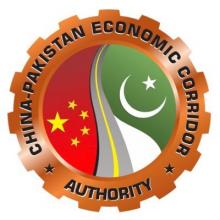
The right to development of populace residing in disputed territories is being left unattended in international development discourse.
-

The series of raids by Islamic State underlines how quickly its ideology has gained traction in Bangladesh.
-

It can well be stated that the India-Pakistan relationship holds considerable significance in South Asia, although the two neighbours have a checkered history of disturbed bilateral relations.
Paxton ported to drupal by DropThemes.in